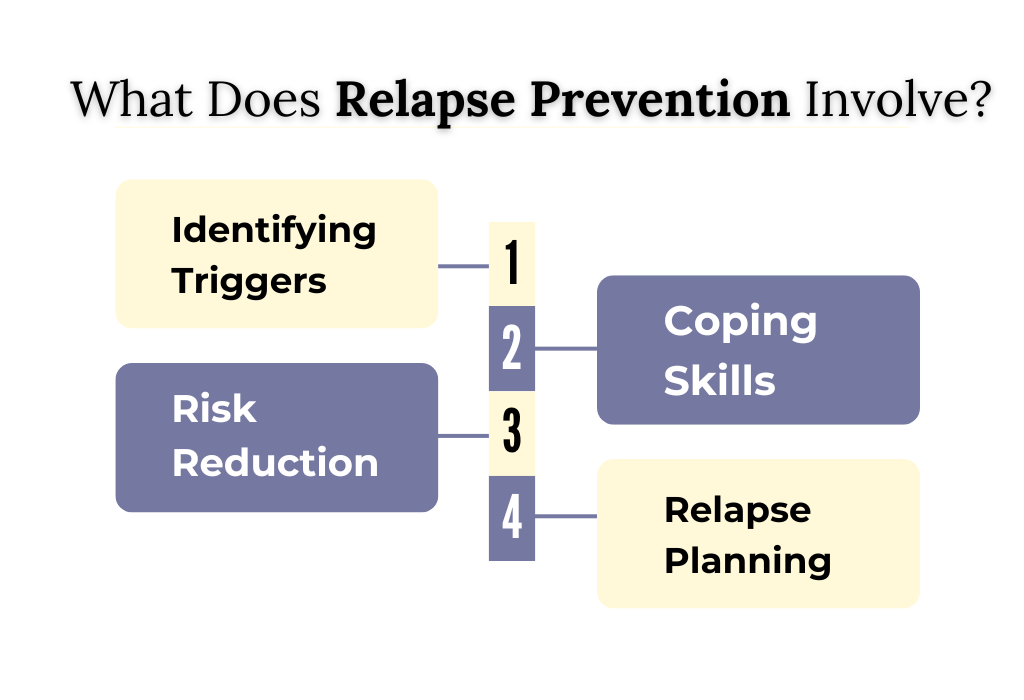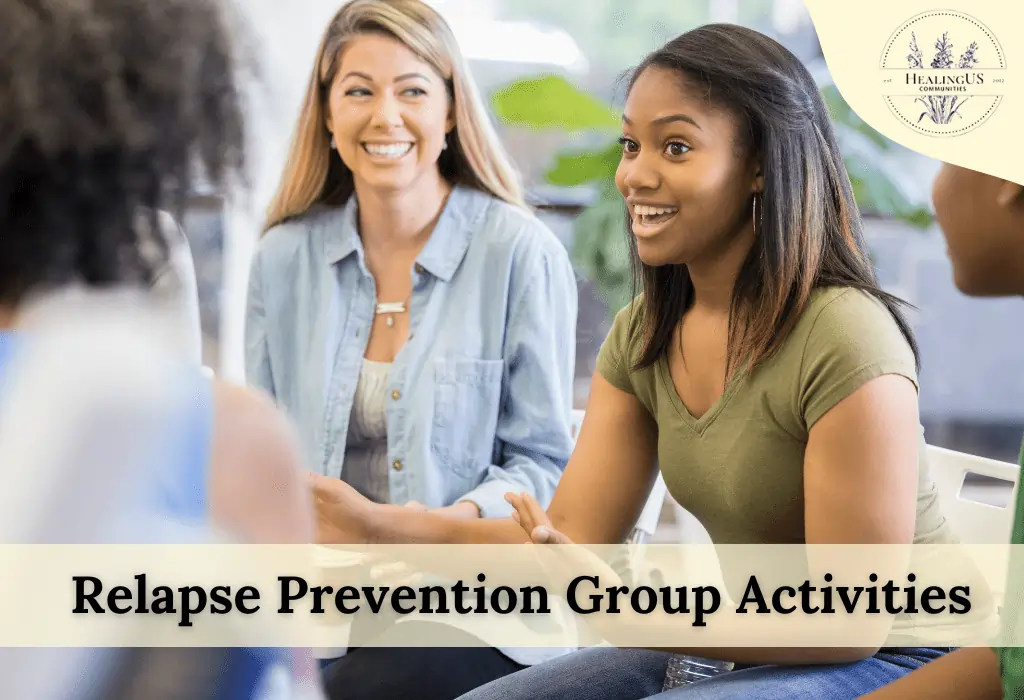Struggling with addiction can be a challenging journey, filled with ups and downs. One of the most critical stages in recovery is preventing relapse. To help individuals maintain their sobriety and overcome temptations, participating in relapse prevention group activities can be extremely beneficial. These activities provide a supportive and structured environment where individuals can share their experiences, learn from one another, and develop effective coping strategies.
The power of relapse prevention group activities lies in the sense of community they foster. They allow individuals to connect with others who have faced similar challenges, providing a safe space for sharing and growth. Through various group exercises and discussions, participants gain insight into their triggers, learn how to deal with cravings and develop practical skills to stay on track.
Engaging in relapse prevention group activities offers numerous advantages, including increased accountability, improved communication skills, and enhanced self-awareness. These activities can range from therapy sessions and support group meetings to physical activities and creative outlets. By actively participating in these group activities, individuals can strengthen their resolve and build a solid foundation for lifelong recovery. If you are on the path to recovery and seeking ways to stay strong and overcome temptations, exploring the world of relapse prevention group activities can be an invaluable step forward.
Understanding Relapse Prevention in Group Activities
Relapse prevention is a critical aspect of recovery for individuals dealing with addiction or other problematic behaviors. It involves developing strategies and techniques to prevent a return to unhealthy behaviors after a period of abstinence or improvement. Here’s an overview of understanding relapse prevention:
The Three Stages of Relapse and How Group Activities Help
1. Emotional Relapse
This stage involves internal struggles, such as stress, anxiety, or isolation, that can eventually lead to relapse.
- Signs of Emotional Relapse:
- Withdrawing from support groups and therapy sessions
- Bottling up emotions instead of expressing them
- Increased stress, anxiety, or irritability
- Neglecting self-care and healthy routines
✅ How Group Activities Help:
- Support group discussions allow participants to share struggles and receive encouragement.
- Mindfulness and relaxation exercises (such as guided meditation) help reduce emotional distress.
2. Mental Relapse
At this stage, individuals begin thinking about using again, romanticizing past substance use, or planning a relapse.
- Signs of Mental Relapse:
- Cravings and obsessive thoughts about using
- Glorifying past substance use (“I had more fun when I drank”)
- Lying about recovery efforts or skipping group therapy sessions
- Seeking out old environments or friends associated with addiction
✅ How Group Activities Help:
- Cognitive-behavioral therapy (CBT) sessions in group settings help reframe negative thoughts.
- Role-playing exercises allow participants to practice saying “no” in high-risk situations.
- Vision board workshops help individuals set positive, long-term recovery goals.
3. Physical Relapse
This final stage is when a person actively engages in substance use again.
- Signs of Physical Relapse:
- Isolating from relapse prevention group activities
- Acting impulsively without considering consequences
- Returning to old habits and behaviors linked to substance use
✅ How Group Activities Help:
- Accountability partners in support groups check in regularly and provide encouragement.
- Creative expression activities (such as art therapy or journaling groups) help process emotions in a healthy way.
- Outdoor or fitness-based group activities provide stress relief and an alternative to substance use.
Here’s a Breakdown of What Relapse Prevention Involves:

Key Concepts:
- Identifying triggers: These are situations, emotions, or people that can increase your craving for substances. Knowing your triggers helps you avoid them or develop strategies to manage them effectively.
- Coping skills: These are healthy ways to deal with stress, cravings, and other challenges that might lead to relapse. Examples include relaxation techniques, exercise, spending time with loved ones, and engaging in hobbies.
- Risk reduction: This involves minimizing your exposure to high-risk situations and potential triggers. For example, if alcohol is a trigger, it might involve avoiding bars or parties.
- Relapse planning: Even with the best preparation, relapse can happen. Having a plan in place outlines steps you can take if you experience cravings or slip-ups. This could involve immediately contacting a sponsor, therapist, or support group.
5 Steps of Relapse Prevention:
Understanding the 5 steps of relapse prevention is essential for maintaining sobriety. These steps work hand in hand with group therapy to help individuals stay on track:
- Individual therapy: Working with a therapist can help you understand your addiction, develop coping mechanisms, and address underlying issues that contribute to substance use.
- Identify Triggers: Recognize situations, emotions, or people that increase cravings. Group therapy activities help you share and identify personal triggers.
- Support groups: Connecting with others who understand your struggles can provide invaluable support, encouragement, and accountability.
- Holistic approaches: Techniques like mindfulness meditation, yoga, and exercise can promote relaxation, stress management, and self-awareness.
- Medication: In some cases, medication can help manage cravings, withdrawal symptoms, or co-occurring mental health conditions.
By understanding these principles and actively implementing relapse prevention strategies, individuals can significantly reduce the risk of returning to unhealthy behaviors and maintain long-term recovery.
Importance of Group Activities in Relapse Prevention
Group activities play a vital role in relapse prevention for several reasons:
- Shared Experience and Understanding: Relapse prevention can be isolating, but group activities provide a safe space to connect with others who understand your struggles. Sharing experiences and building connections fosters empathy, compassion, and a sense of belonging.
- Accountability and Support: Group activities offer accountability partners who motivate you to stay on track. Sharing goals, challenges, and successes creates a supportive environment where encouragement and feedback are readily available.
- Learning and Skill Development: Many group activities are designed to teach coping mechanisms, communication skills, and relapse prevention strategies. Participants learn from each other’s experiences and can practice these skills in a supportive setting.
- Reduced Stigma and Shame: Shame and stigma can be major barriers to seeking help and staying committed to recovery. Group activities offer a judgment-free zone where individuals can openly discuss their challenges and celebrate their achievements.
- Motivation and Inspiration: Hearing others’ stories of success and resilience can be highly motivating. Witnessing others overcome challenges can boost your confidence and encourage you to persevere on your recovery journey.
- Fun and Enjoyment: Recovery doesn’t have to be solely focused on hard work. Group activities can be fun, helping individuals relax, manage stress, and build positive memories associated with their recovery journey.
Examples of Effective Group Activities:
- Support group meetings: Traditional forums for sharing experiences and offering encouragement.
- Skills-building workshops: Learning and practicing coping mechanisms, communication skills, and relapse prevention strategies.
- Creative expression activities: Art therapy, music creation, or journaling to explore emotions and process triggers.
- Social outings: Volunteering, sports teams, or other activities that promote social interaction and enjoyment.
Remember, group activities are a valuable supplement to individual therapy and other recovery efforts. They provide a unique combination of support, learning, and motivation that can significantly enhance your chances of long-term sobriety.
Types of Group Activities for Relapse Prevention
Relapse prevention journeys benefit greatly from dynamic and supportive environments. While individual therapy forms the bedrock, incorporating engaging group activities can supercharge your recovery. Here’s a glimpse of the wide array of choices at hand:
1. Sharing & Learning:
- Support Group Circles: Traditional yet powerful, these provide a safe space to share experiences, offer encouragement, and gain strength from peers.
- Skills Workshops: Dive deep into learning and practicing crucial skills like communication, assertiveness, and coping mechanisms in a supportive group setting.
2. Creative Expression:
- Art Therapy: Explore emotions and process triggers from trauma through artistic expression, fostering self-discovery and emotional release.
- Music Creation: Collaborate with others to create music, promoting teamwork, relaxation, and positive emotional expression.
- Journaling Groups: Share and discuss personal reflections in a supportive environment, gaining insights and fostering deeper self-awareness.
3. Physical & Social:
- Volunteering: Give back to the community while fostering purpose, and connection, and reducing stress with like-minded individuals.
- Sports Teams: Engage in physical activity while building camaraderie, teamwork, and healthy social interaction.
- Board Game Nights: Enjoy lighthearted fun and laughter, reducing stress and building connections in a relaxed setting.
4. Specialized Activities:
- Mindfulness Sessions: Learn and practice mindfulness techniques like meditation and guided imagery to manage stress, and cravings, and improve overall well-being.
- Role-Playing Exercises: Safely rehearse challenging situations like peer pressure or cravings, build confidence, and practice refusal skills.
- Vision Board Creation: Envision and articulate future goals related to recovery, aligning ambitions with concrete steps and fostering motivation.
Case Study: Emma’s Journey to Sobriety Through Group Activities
Emma, a dynamic woman at 32, found herself ensnared in a cycle of addiction. Alcohol had become a crutch, draining her happiness and alienating her from loved ones. Though therapy offered a glimmer of hope, Emma’s isolation only fueled her cravings. Desperate for change, she sought solace in a relapse prevention group.
Stepping into the warm, welcoming space, Emma’s initial nervousness vanished. Sharing her story with others who truly understood was liberating. They weren’t just nodding heads; they offered empathy, encouragement, and the strength that comes from shared experience.
The group offered more than just emotional support. Group hikes filled her lungs with fresh air and camaraderie, while yoga sessions calmed her racing mind and strengthened her body. Art therapy became a safe space to express buried emotions, turning struggles into colorful canvases of healing.
Workshops equipped Emma with tools for battle. She learned assertiveness techniques to say “no” to triggers, practiced mindfulness to manage cravings, and developed coping mechanisms to navigate high-risk situations.
One activity sparked a turning point: vision board creation. Surrounded by supportive peers, Emma visualized a future free from addiction, filled with vibrant colors and aspirations. This tangible vision fueled her determination to break free.
Today, Emma exudes a newfound confidence. Group activities weren’t just a temporary relief; they were a transformative journey. Surrounded by her “tribe,” she has built a support system that empowers her to navigate challenges and embrace a fulfilling, sober life. Emma’s story is a testament to the power of community in overcoming addiction. It’s a reminder that we are not meant to walk this path alone. By connecting with others, sharing experiences, and learning from each other, we can build the strength and resilience needed to thrive in recovery.
Relapse Prevention Group Therapy Activities
Relapse prevention group therapy activities provide vital support and skills for long-term recovery. These activities include:
- Skills-building Workshops: Teach practical skills like communication and stress management.
- Role-playing: Practice responding to challenging situations without relapse.
- Mindfulness and Relaxation: Learn techniques to reduce cravings and manage stress.
By participating in these activities, individuals can strengthen their recovery and stay connected with others on the same journey.
Conclusion: Building a Stronger Future with Relapse Prevention Group Activities
Preventing relapse is a journey that requires continuous effort, self-awareness, and a strong support system. Relapse prevention group activities play a crucial role in helping individuals develop coping strategies, build resilience, and stay committed to long-term recovery.
By participating in support groups, therapy sessions, mindfulness exercises, and creative outlets, individuals not only gain practical tools but also find accountability and encouragement from their peers. These activities provide a safe space to share experiences, identify triggers, and reinforce the importance of maintaining sobriety.
If you or a loved one is on the path to recovery, consider engaging in relapse prevention group activities to strengthen your commitment and prevent setbacks. Remember, you are not alone—support is always available.
👉 Take the Next Step: Join a relapse prevention group today and surround yourself with a community that understands and supports your journey. Contact CFC Recovery to learn more about our programs and how we can help you stay strong in your recovery.



